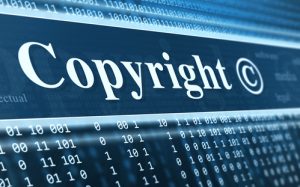Copyright Small Claims Court: The Devil is in Small Details
{5:24 minutes to read} In a prior post, I mentioned that in September 2013, the U.S. Copyright Office had proposed a  copyright small claims court as an alternative to full-blown civil litigation. Almost three years later, the Copyright Office’s proposal has moved onto the legislative agenda as a bill (H.R. 5757) in the House of Representatives sponsored by Rep. Hakeem Jeffries (D-NY).
copyright small claims court as an alternative to full-blown civil litigation. Almost three years later, the Copyright Office’s proposal has moved onto the legislative agenda as a bill (H.R. 5757) in the House of Representatives sponsored by Rep. Hakeem Jeffries (D-NY).
H.R. 5757 largely follows the guidelines recommended by the Copyright Office. It would establish an optional, alternative forum for copyright infringement claims, employing a streamlined procedure and a cap on damages set at $15,000 per work infringed and $30,000 per action (for actions including more than one infringed work). The award of costs and attorney’s fees permitted under the Copyright Act would not be allowed except in cases of bad faith, and even then capped at $5,000.
Many of the pros and cons of H.R. 5757 are already being discussed. Generally, content owners are guardedly in favor of the bill: see, for example, here. Others, especially in the tech sector, see it as a threat: see, for example, here. However, the coverage has not focused enough—to my satisfaction, anyway—on certain procedural details of the proposed system.
One important innovation is the availability of limited statutory damages for works previously not eligible for them. As discussed in another prior post, proving actual damages from copyright infringement is difficult and expensive. Consequently, section 504 of the Copyright Act permits a successful copyright owner to elect to receive instead an award of statutory damages: an amount set by the court, usually between $750 and $30,000 per work infringed.[1] However, statutory damages (as well as awards of attorneys’ fees and costs) are available only in connection with works which were registered before infringement.[2] The financial realities of litigation being what they are (see Ask the Attorneys Registering Your Copyrights – – Just Do It), it is frequently impractical to pursue an infringement action for a work not registered in time.
Under the proposed H.R. 5757, for the first time, statutory damages would be available for works which were not timely registered.[3] Instead of the already limited cap of $15,000 per infringement of a timely-registered work, and $30,000 per action, works not timely registered would be eligible for half of that: a cap of $7,500 per infringed work and $15,000 per action.[4] This new provision could well be a boon for foreign works: since few other countries have a registration requirement, it is common for foreign owners to be unaware of the U.S. registration system, and for such works, major blockbusters excepted, not to be timely registered in the United States. By allowing even limited statutory damages, it may become financially feasible to enforce copyrights in foreign works not timely registered.
A second innovation is less favorable to plaintiffs: Enforcing a judgment against a recalcitrant defendant would require considerable extra expense unless that defendant resides in Washington, D.C. When brought – as is currently required – as a lawsuit in federal court, a copyright claim must be brought where the defendant “resides or may be found.”[5] When a victorious party receives its award from the district court, the judgment should be enforceable directly against that local defendant. Under the proposed small claims system, however, an award by the small claims board must be confirmed in a separate action by the U.S. District Court for the District of Columbia,[6] entailing additional costs. Then, if the defendant does not reside or have property in the District of Columbia, the judgment from the D.C. District Court must be registered in a district where the defendant actually resides or has property,[7] yet another court action entailing yet further costs. Recall that none of the costs or attorney’s fees involved in these further court actions are chargeable to the defendant; the victorious party must bear its own costs to enforce the award of the small claims panel.
There is a long road ahead before H.R. 5757 may be enacted. If it is, it remains to be seen whether the optional system will be a benefit or an impediment to copyright holders and users.
 Joshua Graubart
Joshua Graubart
646-781-9321
jggraubart@graubartlaw.com
www.graubartlaw.com
_______________
